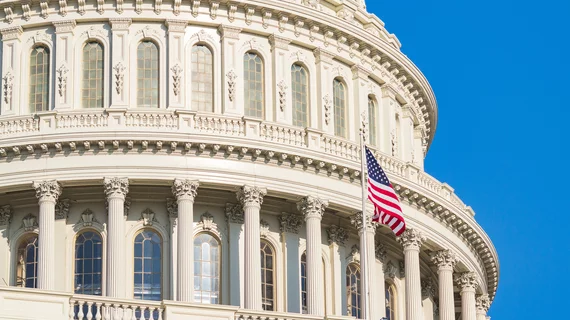Congress moves to permanently repeal medical device tax
Lawmakers have included a permanent repeal of the medical device tax in a new end-of-the-year government funding agreement announced this week, drawing praise from multiple medical device groups.
Congress is expected to pass the bill this week, which it will then send on to President Trump to sign into law before government funding expires at midnight Friday, Politico reported.
Multiple industry groups, including the Advanced Medical Technology Association (AdvaMed) and Medical Imaging & Technology Alliance (MITA) have long urged for a permanent end to the 2.3% tax, citing a potential $20 billion levy on the industry in the coming years, absent its repeal. In early 2018, the tax was suspended for two years and would have reemerged next month.
“Without question, today is a great day for American patients,” AdvaMed President and CEO Scott Whitaker said in a statement. “Inclusion of full repeal of the medical device excise tax in this funding agreement means America’s medtech industry can now focus exclusively on job No. 1: innovating and bringing the medical technologies of tomorrow to patients in need.”
“This truly is an overwhelmingly bipartisan win for America’s patients,” he added.
A report released in October 2018 found that the tax violates many sound, core tax principles, including tax neutrality and transparency. That same report also suggested eliminating the tax would encourage medical innovation and improve the quality of care.
MITA, which has also been at the forefront of permanent repeal, released its own statement Tuesday, Dec. 17, encouraging Congress to take the final step toward unburdening device manufacturers.
“We’re almost across the finish line. We urge lawmakers from both sides of the aisle to approve this spending package, fully repeal the medical device tax and boost medical innovation in the U.S.,” Patrick Hope, executive director of MITA, said in a statement.

